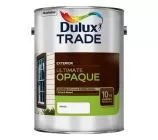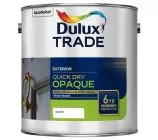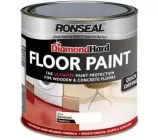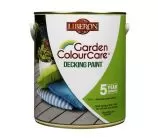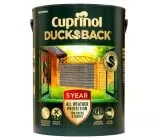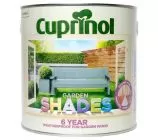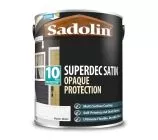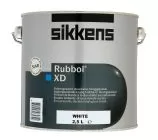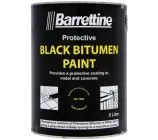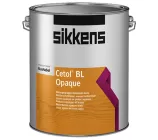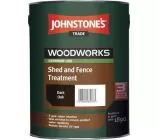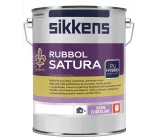
Wood Paint
Apply a layer of wood paint to give it a new lease of life. We have hundreds of different colours and sizes available that resist flaking, peeling and chipping. Each one of our specially formulated solutions are quick drying, hard wearing, slip, scuff and scratch resistant. They can be applied to new or previously painted/stained surfaces.
-

Dulux Trade Ultimate Opaque
From:£23.49(inc VAT)39 colours multiple sizes -

Dulux Trade Quick Dry Opaque
From:£22.95(inc VAT)39 colours multiple sizes -

Ronseal Diamond Hard Floor Paint
From:£37.95(inc VAT)multiple sizes -

Liberon Garden Colour Care Decking Paint
From:£34.95(inc VAT) -

Cuprinol 5 Year Ducksback
From:£0.00(inc VAT) -

Cuprinol Garden Shades
From:£10.49(inc VAT)9 colours multiple sizes -

Sadolin New Superdec Opaque Wood Protection
From:£18.95(inc VAT)FREE DELIVERY on 5lt Standard Colours 1 colour -

Sikkens Rubbol XD Gloss
From:£27.95(inc VAT)multiple sizes -

Barrettine Black Bitumin Paint
From:£12.49(inc VAT)multiple sizes -

Sikkens Cetol BL Opaque
From:£44.29(inc VAT)1 colour multiple sizes -

Johnstone's Shed & Fence Treatment
From:£15.95(inc VAT) -

Sikkens Rubbol Satura
From:£25.29(inc VAT)
Frequently asked questions about wood paint
What paint to use on wood?
For a professional finish that will last, it is always advised to use a paint that has been specially formulated to use on wood, rather than masonry paint that will easily peel. If you are planning to paint exterior wood, it is highly recommended to use a specific exterior, garden or decking paint to ensure it can withstand the outdoor elements.
How to paint wood?
Note that all of our individual wood paints will have specific guidelines for the highest quality finish. As an overview, these are the general steps on how to paint wood:
- Protect your work surface from paint spills by layering a plastic sheet and canvas dust sheet over the floor or your chosen work surface
- Clean your wood surface with your chosen wood cleaning product as per the manufacturer’s instructions and allow the wood to dry completely
- Once the wood surface is dry, check for large imperfections and fill with wood filler if necessary
- Sand the flat wood surfaces first with a sander or sandpaper to smooth the surface and create a rough texture to help the paint bond
- Sand any corners or smaller details by hand with sandpaper
- Ensure that all sanding dust is removed using a shop vacuum and following with a slightly damp rag
- Time to apply primer. Mix well and apply with a brush or roller. Follow manufacturer drying times
- Once the primer has dried completely, sand it down lightly before painting
- Remove primer dust with a shop vacuum and light clean with a tack cloth
- For wood surfaces that have large flat rollers, you can apply wood paint with a foam roller for an efficient workflow
- If you are painting furniture or trims, it is advised to use a paintbrush to apply wood paint
- For an incredibly smooth finish, allow your first coat to dry and lightly sand down any bumps from painting
- Lightly clean the surface with a tack cloth with gentle pressure
- Apply the final coat of paint and let the wood surface dry overnight

